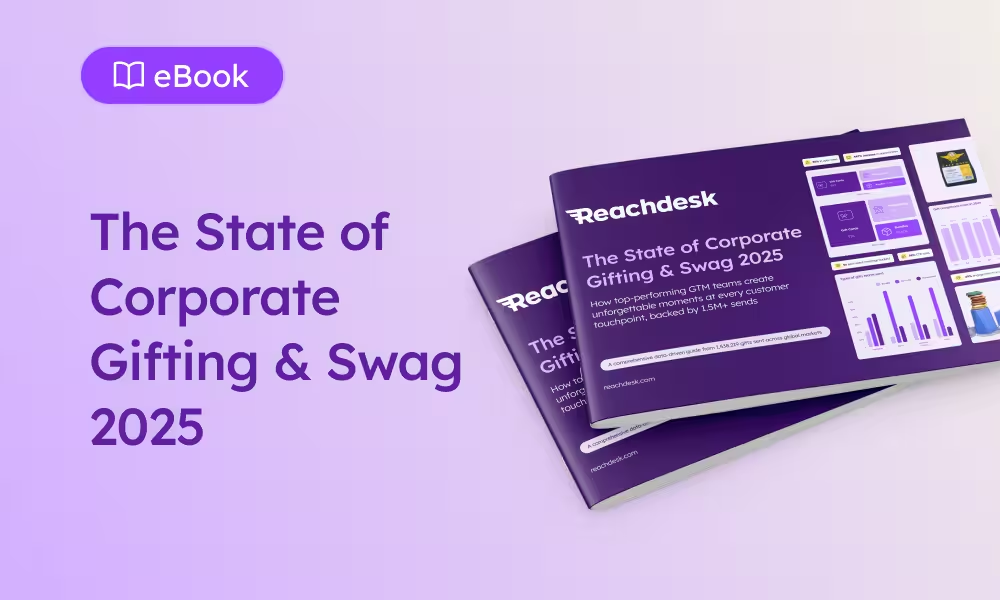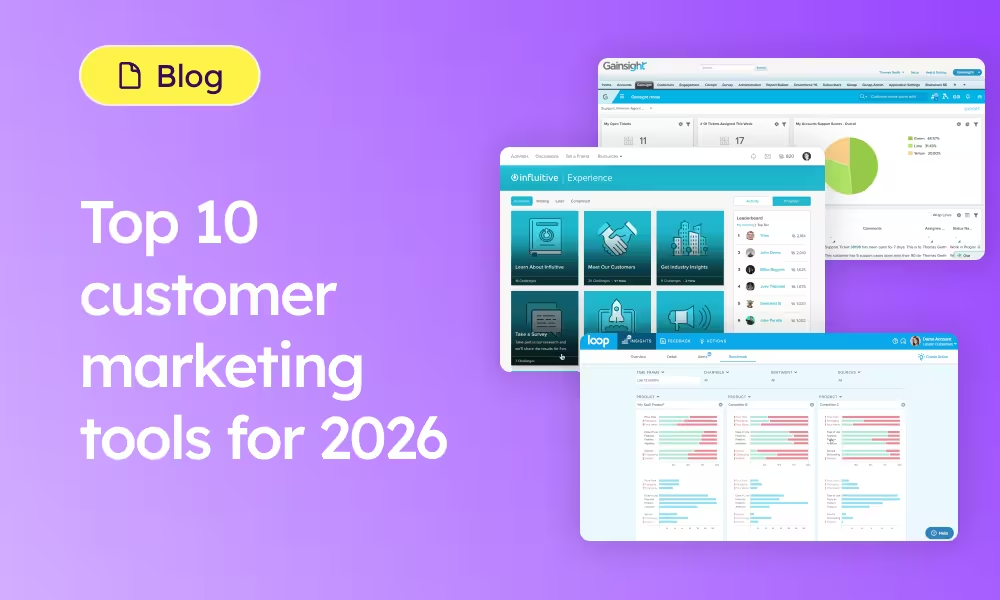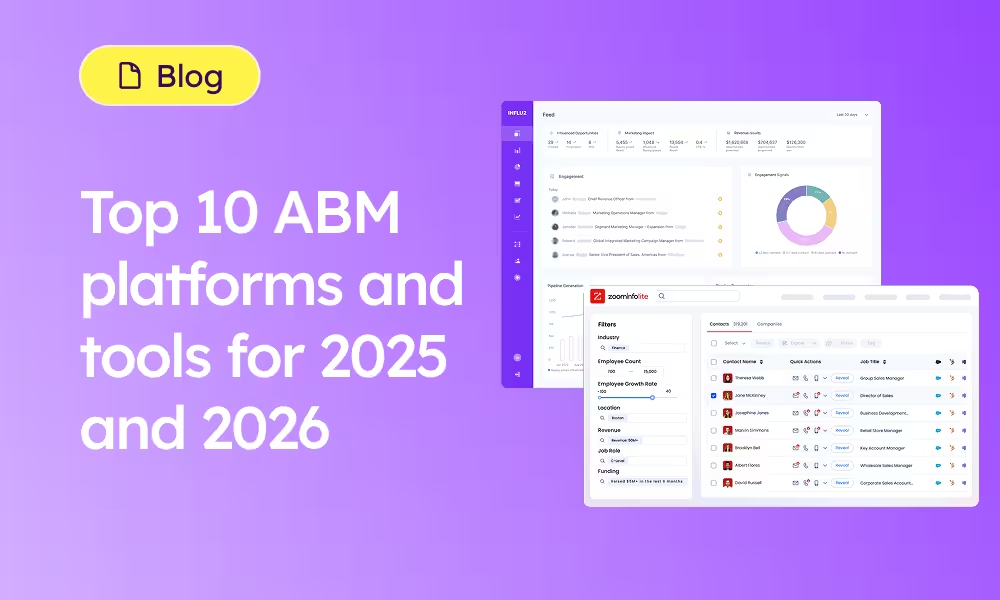One powerful platform for ROI-driven corporate gifting, swag, and engagement at scale.
If you only trust your gut when it comes to hiring, you can expect to spend the rest of your career clearing up other people’s messes. And it will have been your own fault. My goal here is to help you control the way you hire salespeople so they can make your life easier and improve performance. I’ve hired hundreds of account executives (AEs) and business development representatives (BDRs) over the years.
Trust me when I say this: Ivy league, athletic, 6ft tall, Patagucci-wearing males are not your recipe for success. Don’t get me wrong, I’ve worked with many who fit this description and they’ve nailed it in sales. It’s the underlying attributes that helped them succeed. If you want to avoid spending a ton of your sales leadership career firing people because YOU choose the wrong people, read on.
Hiring your first salesperson
Congratulations. You’re in a position to hire your first salesperson. Bring on the good times. This usually happens when you’ve got some semblance of product market fit. You have paying customers and a product that is ready to be taken out to the market in all its beauty. If you’re a founder and hoping to get a salesperson to win your first 10 customers, you might want to think about getting a partner in crime as a co-founder who can help you here first. All founders need to be able to sell. Skip this stage if you’ve already made your first sales hire.
The first big mistake I see a lot of people make is they assume they can get an experienced VP who will save the day. 6 months later not a lot has happened but they have an amazing sales process mapped out. Guess what, you’ve run out of cash and the process dies with the company.
Here’s the good news. Lots of people want to join startups. They are usually the right people and will bring their energy with them. You usually have a few options on the type of salesperson you can bring in. Here are a few to consider:
1. The VP of Sales / CRO
I’m a CRO. In my opinion, this makes me a terrible first sales hire. On the face of it, I seem like a safe bet. But few CROs are going to have the energy or “lack of knowledge” you need for them to succeed. Yes, I said “lack of knowledge” (see below). Most VPs and CROs have their playbook nailed down. They take it with them from company to company. Sometimes it works. Sometimes it doesn't. But it’s hard to unlearn and try new things. Particularly when you’ve seen success in the past. Yes, they will have a decent black book of contacts. But that will run out in 6 months, at best. And black books don’t scale. I was once hired for my contacts without knowing it. Let’s just say it didn’t work out.
2. The Big Hitter
High-performing sales reps make a ton of money. So they are hard to steal. If they are top of the leaderboard they will have grafted their way there. So they are clearly dedicated, have grit, and like to make money. Which makes them a good option. Don’t fall into the trap of hiring someone from Oracle because they did well at Oracle though. If you’re making your first sales hire, you’re decades away from where Oracle is as a company. Big Hitters can often come with a ton of energy and know how to deliver great presentations. That’s because they’ve been taught to sell. A big learning: personality doesn’t sell. Process does. The most boring people I’ve worked with are some of the greatest sellers I’ve seen. It’s the infrastructure around them they’ve been used to. Modern salespeople have dozens of tools, tons of data, and ops to support them. You won’t have this. And without this, they might not deliver the results you need.
3. The Wild Card
In the early stages of building your business, you’re going to have to change direction all the time. And you need people who can do that with you. Wildcards are entrepreneurs who don’t really know a lot. I’ve taken quite a few learnings from Mark Roberge. Mark was an Engineer and was HubSpot’s first sales hire. He made it all the way as their CRO and took the company public. With zero experience. But he knew how to build process and structure whilst having a ton of entrepreneurial flair. So what you really need is an entrepreneur. Someone who likes to build. And has a reason to build. They lack knowledge. But the right person will find the knowledge and apply it to your company. Without an existing “playbook” to bring in from elsewhere, they’ll create the right one for your organization.
Who you hire depends on your experience and what you know you need. You might already have some sales experience and decided to start a company. So your first sales hire might be someone who is going to open up doors for you. If you don’t have any experience you’re probably looking for someone who can ideally be a future leader. If you can afford it, hire 2 people and create competition between them. Get them to share their learnings. And if 1 doesn’t work out then you’re not left dead in the water. When we started Reachdesk I hired Ben Smith and Scott Finden as the first 2. And they smashed it. As of this writing, Ben is the Global Director of Business Development and Scott is one of our top-performing Senior AEs. They weren’t successful because of my gut feel. It was because they both fitted into the hiring formula.
The sales hiring formula
I learned a lot about creating a sales hiring process from a book titled The Sales Acceleration Formula by Mark Roberge, which I then adapted it for us at Reachdesk. A sales hiring formula gives you a template to follow that allows you to remove the bias when hiring. Remember that “gut feel” we spoke about earlier? Don’t let bias punch you in the gut later on by not having a consistent, repeatable process.
The main pillars of our sales hiring formula at Reachdesk are:
- Culture fit: The right values and diversity
- Characteristics: The attributes we know they need to succeed
- Competencies: The core competencies for sales people (I've intentionally left out of this blog post as this is its own ballgame)
- Drive: The will to do the job well
Culture fit
There’s nothing worse than having high-performing individuals who don’t slot into your team as a whole. I think of sales as a team sport. Your job is to find the right people that can operate as a team. To be clear it’s a sport. Not a family. Families tend to have baggage and fight all the time. Also, you can’t choose your family. But you can choose who plays on your team.
It’s not about getting individuals to crush their quota. The New Zealand All Blacks are a world-class rugby team that has a rule: “No dickheads allowed.” This means no assholes. On or off the pitch. And they’ve been one of the highest-performing international sports teams for years thanks to having the right culture. Do the same for your sales team. They will perform better because they will share the wins and what’s not working. This allows you to innovate.
We do this by testing for our four values:
- Be bold, learn fast, get things done
- Win as a team
- Deliver happiness
- Treat people like people
If you have company values, use them in your hiring. You'll see how this can be done when testing for salespeople in our scorecard below.
Ultimately, you need a diverse team if you want to innovate in sales. I’m not just talking about hiring people based on race or gender. It’s all about having a team that can bring different ways of thinking. Sales changes every month. There’s always a new tactic, channel, and method. Diversity opens new ways of thinking as you navigate this crazy new world of selling.
Characteristics
So, hopefully, you’ve found the right people who will be the right fit for your team culturally. I’ve seen dozens of people who stop there and offer the candidate the job. They’ve only done 10% of the work. This is where you can remove bias by defining the characteristics that make sense for your organization. I’d like to share the characteristics we use for BDRs who we also test for potential as future AEs as part of our “academy model”. Not a single AE has failed after transitioning btw… Thank you again, Mark Roberge, for your wisdom here.
The main characteristics we test for are:
1. Curiosity: The best sales reps are genuinely curious. They actually want to understand their prospect's pain so they can solve it. The best candidates often ask interviewers follow-up questions and want to know a ton about you and your business.
2. Coachability: This is probably one of the most important characteristics. If you can’t mold reps because they aren’t coachable, don’t hire them. They need to “unlearn” and adapt to your business and your process. They need to reflect on their performance and be aware of what they need to improve on or change. They need to take on your feedback and apply it.
3. Work ethic: Sales is not difficult. It’s hard. And hard work pays off. As my colleague James Suwanpatra always says “Keep making the deposits.” In return, reps will make big “withdrawals” from the Bank of Selling. But this doesn’t happen if you’re not willing to graft.
4. Prior success: You’re aiming for the top 1%. If you can’t get that, aim for the top 5%. Your team is only as good as its worst player. So hire the best. If they’ve been in sales before, this is easy. You can simply ask where they ranked in their last team. If they haven’t it gets harder. You’re looking for people who have done something in the past that can easily be deemed a success and would have been hard for anyone to pull off. For example, did they make it into the 1st 8 Crew in rowing at their college? Did they then go on and win the National Championships? It wouldn’t have been easy to get there and this kind of commitment is what you want on your team.
5. Intelligence: I used to think sales was for greedy dumbasses who didn’t make it after they graduated. Now I know sales is complex. Great salespeople can understand complex concepts and communicate them clearly to customers. We need to be on top of trends and apply them to our offering in forever-changing industries. You don’t need a law degree to be intelligent. But you do need to show you understand the landscape and what that means to customers so they can easily buy from you as you’re the one who will solve their potential problems.
Drive
95% of your time in sales is spent dealing with failure and rejection. Still want to work in sales? Great, now you’re showing real drive. You need people who have clear reasons to want to work in sales. A lot of it is a repeatable process. So candidates need to have the right motivations to be in sales.
If candidates say they aren’t motivated by money and want to work in sales, there’s something wrong, IMHO. Sales people are there to help customers but and therefore generate revenue for the company. It’s OK to be driven by money. But you need more than this. Drive can be anything from wanting to provide for a family to having aspirations to be a CEO one day.
All this theory on characteristics now needs to be applied in a scorecard so you can get testing and find those world-class sales reps.
Hiring scorecards
Have you ever found yourself buzzing after an interview because of the energy the candidate gave you, only to find 6 months later that all that energy they gave you was about as useful as a solar-powered flashlight because there was no follow-through? Hiring isn’t meant to be cryptic. Hire based on a clear scorecard that removes the bias and allows you to put up a mirror to yourself. So what if they didn’t have the energy you were looking for? The “right” people can be like a nuclear power plant constantly charging up your pipeline.
Sales hiring is like a sales process. It has clearly defined stages and clear criteria mapped out on how you progress to the next stage. I can’t share the ins and outs of our process (sorry if you’re interviewing for Reachdesk right now and hoped to game the system here). But I can share an overview of what I think good looks like. This is to get everyone quite literally on the same page.

As you can see above, we have different people testing for different areas across the process. We see where candidates drop out of the process and why (sounds like a sales process, doesn't it?). We also look for the fine details so we know that we’re getting the best people. Don’t underestimate how important it is when candidates respond quickly to emails (Work Ethic), if they ask follow-up questions after you send them information to help them prepare (Curiosity), and write down guidance you give them (Coachability). These are the small signals that lead to greatness.
Don’t forget, candidates are testing you too. If you think hiring is all about assessing candidates, it’s likely you will end up putting a ton of people off joining you and your company. I like to have prompts at each stage where we ask “what would you like to know about Reachdesk?” and “Is there anyone in the team you’d particularly like to meet?”. I teach the whole company about our vision, mission and purpose so they can articulate this consistently to future employees. Give your team the information they need to help candidates make a decision about you!
Every candidate needs a scorecard. One reason is that you can go back through prior scorecards and see how your top salespeople performed as candidates and continue to look for similar people in your hiring process. The main reason is that you can fairly assess reps and remove the bias as well as scale your sales hiring effectively. Scorecards differ for each company.
Here’s how it works:
- Test for each characteristic with specific questions
- Mark a score out of five against each question
- Map out what a good answer looks like for each answer from one to five (for the interviewer only, obviously!)
- Create a total score and pass mark for each stage of the process
Here's an example to paint the picture:

Here’s a link to some sample questions and how you can structure your scorecard to get you started. Make a copy of it and adapt it for your business.
If you use platforms like Greenhouse for hiring, get this into your ATS so you can automate a lot of this. Equally, spreadsheets work just fine. I've intentionally left out where we ask these questions and how we screen candidates (in case you’re interviewing for Reachdesk right now 😂)
Good luck hiring a world-class team who will make you and your company a ton of cash!






.jpeg)



